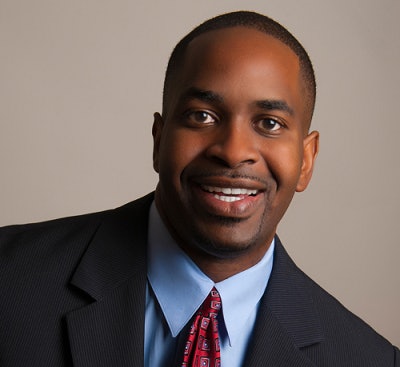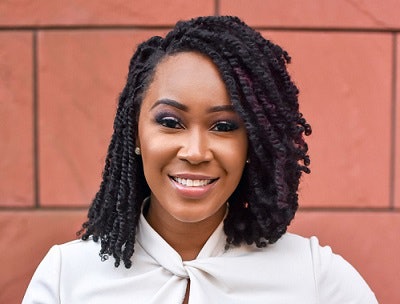My colleague, Dr. Janelle L. Williams and I had the privilege of presenting at the Philadelphia College Prep Roundtable (PCPR) forum on August 22nd, on the campus of Saint Joseph’s University in Philadelphia, Pennsylvania. Our presentation focused on the current enrollment trends in historically Black college and universities (HBCUs). The purpose of PCPR Forum was to help practitioners in the Philadelphia area to develop and strengthen relationships through networking and professional development opportunities, share resources and connect with school district officials to enhance college access and provide best practices for college student success, and to advocate for stronger postsecondary access and completion for students in the Philadelphia region.
 Dr. Robert T. Palmer
Dr. Robert T. PalmerWhile a number of informative presenters spoke at the PCPR Forum, we excitedly presented on our national study about how the current political and social climate in America contributed to what many pundits have called an enrollment renaissance among Black college students and HBCUs. We reflected on recent trends, including, a wide array of anecdotal evidence claiming that the heightened racist climate in society coupled with the “Missouri Effect”—a rise in race-based harassment among Black students at predominantly White institutions— engendered an uptick of Black students applying and matriculating into HBCUs. Our study, involving approximately 80 freshmen and sophomores across four HBCUs, found this to be true. Thus, our eagerness about presenting at this forum came not from sharing the findings of our study with the attendees of PCPR, but from having the opportunity to speak with practitioners working with school districts to encourage collaborations, explicitly with the local HBCUs.
Given the mission of PCPR and its audience, we were thrilled to talk with the attendees about HBCUs to change the narrative, dispel myths and inform these educational gatekeepers about the continued success and validate the impact of these often-forgotten institutions. Repeatedly in the HBCU research literature and through anecdotal accounts, we have learned that school officials, specifically counselors but also teachers, are not aware of HBCUs and fail to present these schools as options for college-bound high school students. This theme was apparent among the in-depth, one-on-one interviews we conducted with the students in our national study. It is also a theme that resonated with us as we embarked upon our own individual college search process.
During the question and answer period of our presentation and after the conclusion of the session, while many attendees thanked us for our presentation, they shared sentiments that mirrored those found in the research literature about how school officials, mainly counselors, lacked an accurate knowledge of HBCUs. They even shared anecdotes of how some counselors looked down upon HBCUs and discouraged high-achieving or academically gifted Black students from attending these institutions. Because of such, one attendee, who worked at a school in the suburbs of Philadelphia, shared she was resolute in making sure her students had proper HBCU exposure and flew someone in from Spelman College, in Atlanta, Georgia, to speak with her students about the historic and present value of HBCUs.
 Dr. Janelle L. Williams
Dr. Janelle L. WilliamsThe work that PCPR is doing is phenomenal and it is a great way to break down barriers and build pipelines when it comes to that invisible boundary that exists between high school and college. PCPR’s goal of having higher education practitioners and researchers work with school districts is deeply admirable, especially its effort to educate those in K-12 positions, particularly counselors, about the many benefits HBCUs could provide to incoming students. In addition, the forum had representatives from the Malcolm Bernard Historically Black Colleges and Universities College Fair, who were able to add commentary regarding the value proposition of the HBCUs, particularly those in Pennsylvania. The two HBCUs located in Pennsylvania are Cheyney University founded in 1837 and Lincoln University founded in 1854.
We also shared highlights from the 2019 UNCF report HBCUs: Punching Above Their Weight,, which spoke to the significant contributions, enrollment figures and economic impact of the two institutions. Many attendees were shocked to learn that combined, these two schools enroll 6% of all Black undergraduates at public and private four-year institutions in Pennsylvania. Equally, as surprising to the participants was the economic impact of the graduates. According to the report, the 599 Pennsylvania HBCU graduates in 2014 can expect total earnings of $1.6 billion over their lifetimes.
Moving forward, PCPR has made a commitment to ensure that HBCUs continue to be intentionally included in the ongoing professional development and dialogue of its members. This commitment is important to not only recognize these great institutions but also to utilize the collective resources that may be beneficial to the populations they serve. We hope more communities will follow the example of PCPR and establish a similar organization in their cities. Their efforts to foster a relationship with the local school districts to not only promote college access and student success, but to also work with teachers and counselors to better inform them about the value of HBCUs, is noteworthy.
Dr. Robert T. Palmer is the department chair and associate professor in the Department of Educational Leadership and Policy Studies at Howard University.
Dr. Janelle L. Williams is a visiting scholar at the Center for Minority Serving Institutions at Rutgers University, New Brunswick.















